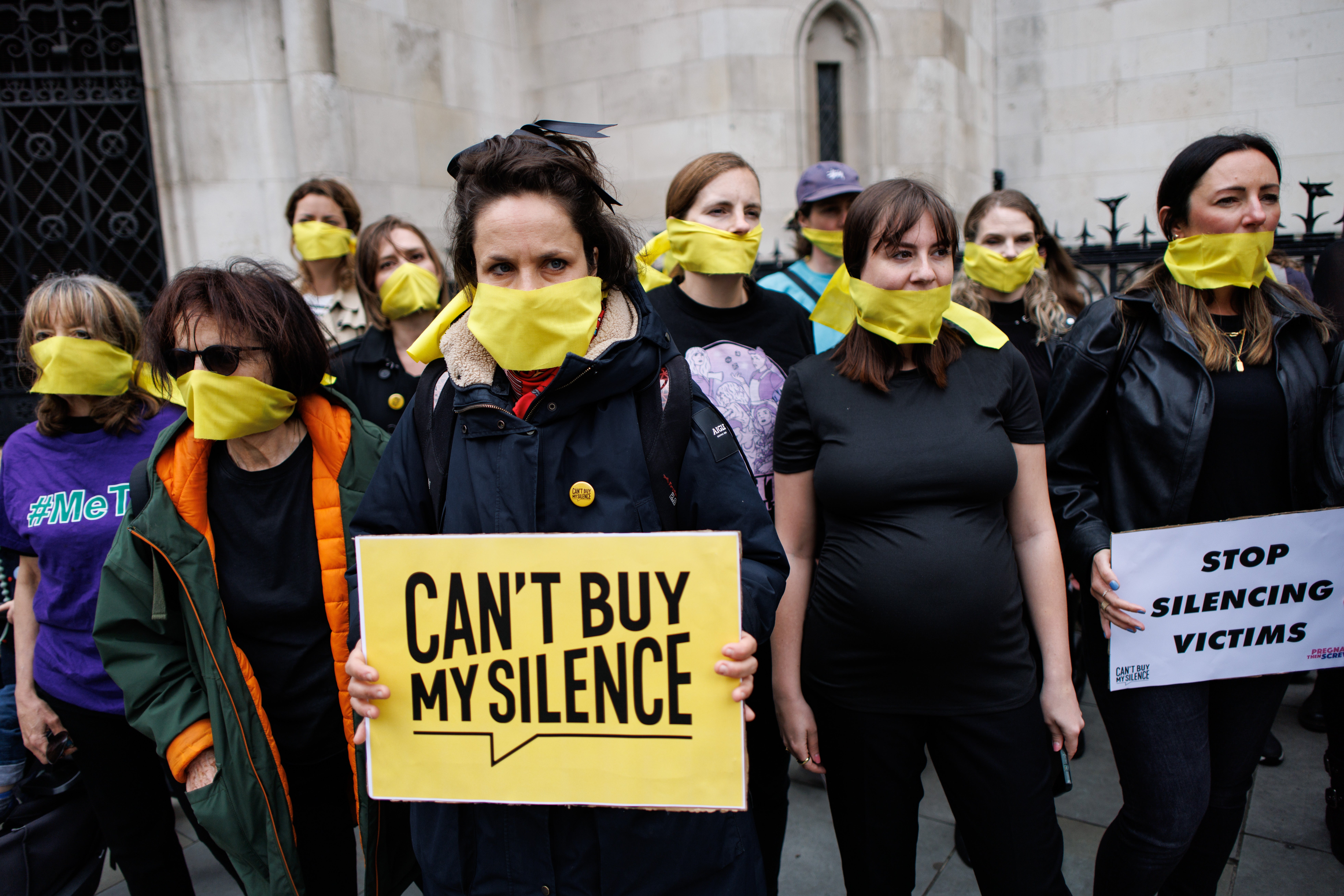From Harvey Weinstein to Mohamed al-Fayed, we need to end the abuse of NDAs
Working with Zelda Perkins – who broke her 20-year NDA to help expose Weinstein’s abuse – and colleagues from across party lines, we finally have a commitment from the government to introduce a ban on NDAs at universities. But the problem doesn’t stop there, writes Layla Moran MP


Women around the world continue to confront barriers to safety, opportunity, and justice. Whether it’s the gender pay gap, underrepresentation in leadership, or the increasing wave of misogynistic abuse online, the struggle for women’s rights is far from over.
One issue that I have vocally campaigned on is women silenced by non-disclosure agreements. Proponents of NDAs argue they have a safeguarding effect on the victims, protecting their reputations. I wholeheartedly disagree. All NDAs and gagging clauses do is prevent victims from speaking out and accessing the support they need, by stopping them from reporting, speaking to family and friends about their own experiences, or warning others.
This was first brought to my attention in a constituency surgery by an incredible young woman studying at Oxford. After she was sexually assaulted by another student, her college produced a no-contact agreement, which included safety measures like stopping her assaulter from accessing her accommodation.
However, the agreement also contained a gagging clause preventing her from making any information about the assault or the investigation “publicly available”. The clause was presumably meant as a measure to stop her from going to the press or saying something on social media. But the young woman thought the clause meant she couldn’t even speak to her GP. She deeply resented that she, as the victim, could be sanctioned for breaking it. She found it constantly restraining and unjust. I agreed.
Following a review instigated by this brave woman and others like her, Oxford University assures us that they no longer use these kinds of mechanisms.

In the years since this case was brought to me, I have spoken to several people who felt forced into signing NDAs. All of them wish they hadn’t, so, I took this campaign to parliament.
Working with the amazing Zelda Perkins – Harvey Weinstein’s former PA who broke her 20-year NDA to help expose his abuse – and colleagues from across party lines, we finally have a commitment from the government to introduce a ban on universities using non-disclosure agreements in cases of sexual misconduct, harassment, and bullying. But the problem was never limited to universities.
NDAs are endemic across all sectors of society. They are used by businesses big and small, by schools and charities. In the recent stories detailing Mohamed al-Fayed’s vile abuse of staff at Harrods, NDAs were often deployed to cover up his behaviour and keep women quiet. So, my campaign hasn’t stopped.
Over the years there have been several opportunities and bills where we have tried to make broader changes. Each time the government has said they agree this issue deserves attention, but claimed this isn’t the right time, the right wording, or the right framing. When will be the right time? How much longer is the government content to sit by and allow this deeply harmful practice to go on?
The Employment Rights Bill currently going through parliament is an excellent opportunity to stop employers from putting their employees under an NDA in cases of harassment, abuse, and discrimination. Sadly, the government rejected my amendment, and the minister even said my proposal “would make a significant change from the current position”. As it stands, you’re now protected from NDAs if you work for a university but not if you belong to any other institution.
My question to the government is simple. Are they happy with the current position? Non-disclosure agreements are insidious because of the power they hold over survivors.
Time and time again we see powerful institutions scaring individuals into silence or told that their pain is less important than the reputation of a powerful organisation. And it seems the government is comfortable with that.
As we think about the progress made towards achieving gender equality, and the steps still to take, I am determined to enshrine in law the principle that no victim should be silenced.
Layla Moran is the Liberal Democrat MP for Oxford West and Abingdon
Join our commenting forum
Join thought-provoking conversations, follow other Independent readers and see their replies
Comments
Bookmark popover
Removed from bookmarks